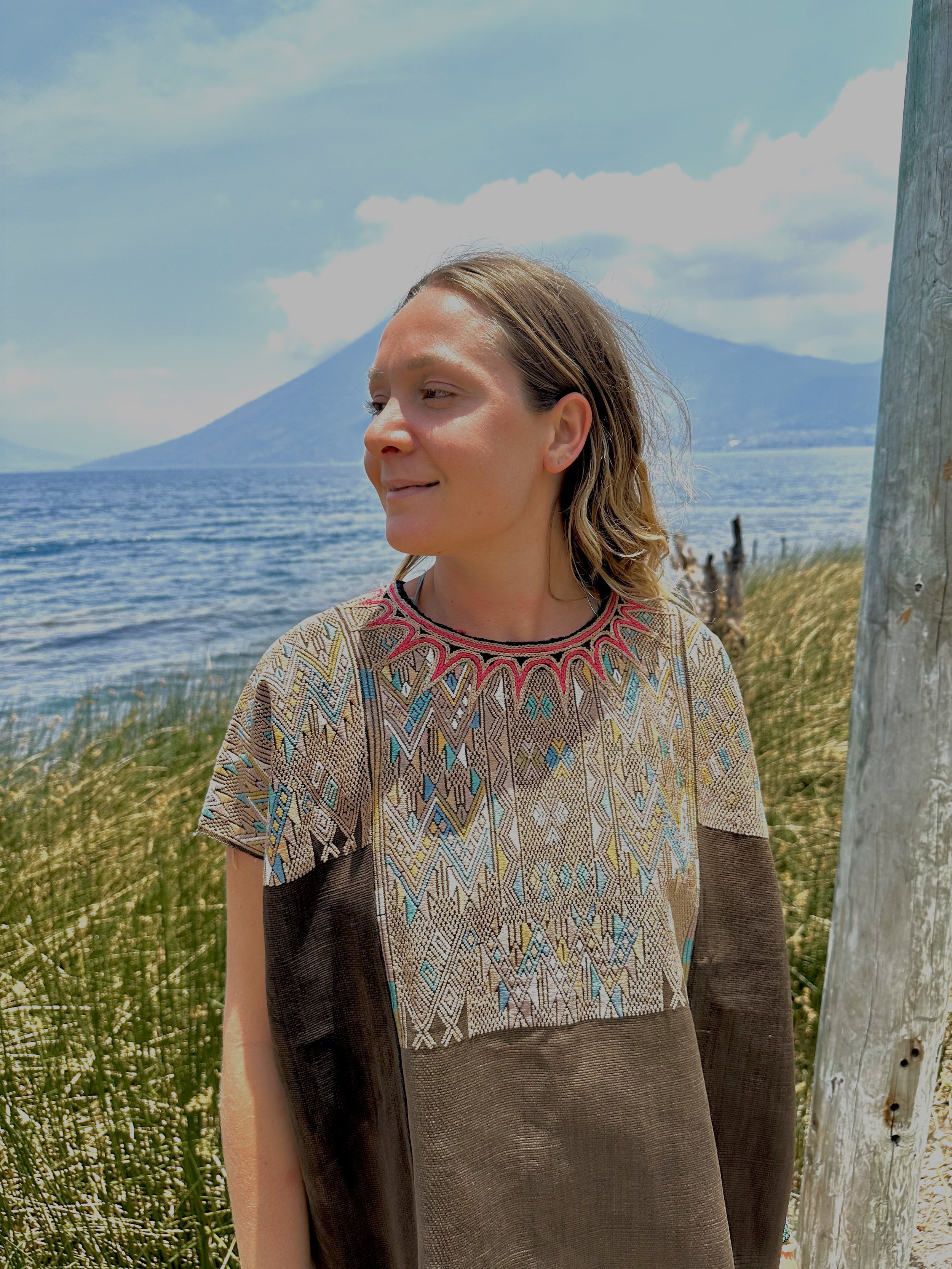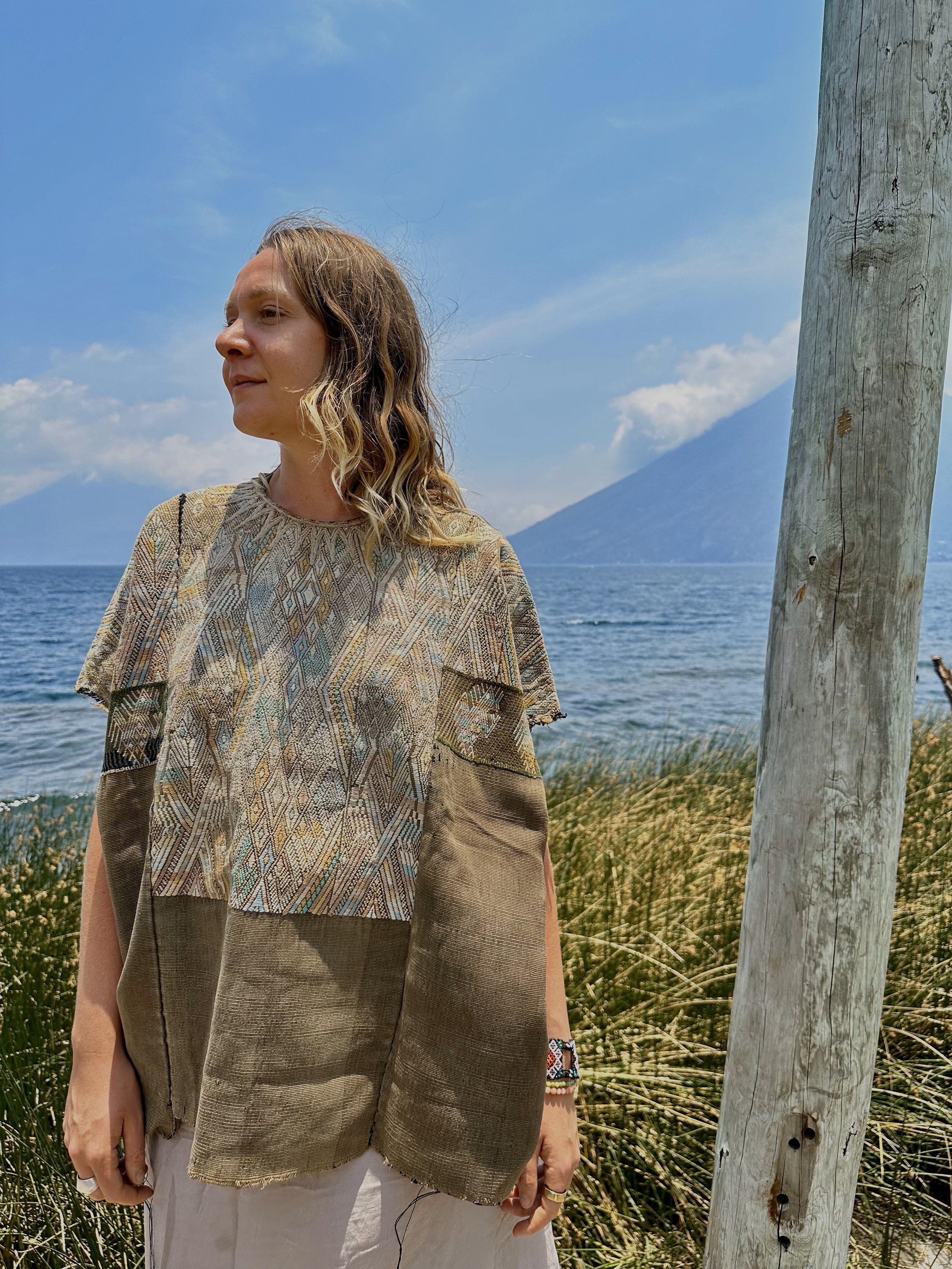
Sharing the wisdom, traditionS and art from indigenous CULTURES all over the world!
The Wild and Sovereign store is a collection of art, TEXTILES and products THAT HAVE BEEN HAND MADE BY indigenous families all over the world.
We are in support of PROTECTING their native traditions, their ancestral wisdom and the continuation of their ability to live within these traditions.
The products and art collected within this store have been INTENTIONALLY CHOSEN TO SUPPORT THE native elders who have made an impact on my story & my journey while traveling around the world.
This is a place to share their stories & their art AS A WAY TO PROTECT THE TRADITION AND WISDOM OF THEIR CULTURE.
rAICES mAYA cACAO
This is Byron, one of the indigenous Mayans that is a guardian of the sacred trees that bear the fruit of cacao on the farm from which our cacao is sourced from in Patulul Suchitepequez, Guatemala.
This cacao endures a very long and sacred traditional process that takes this medicine from the fruit that you see to the block that you will recieve.
There is a collective of farmers who protect, care for and pray over the cacao trees as well as a collective of indigenous women who process the fruit of the cacao into this block through fermenting, roasting, peeling, and grinding the beans into a paste all by hand.
This way of processing the cacao by hand and following the ancient Mayan tradition with intention and prayer is what makes this "Ceremonial" grade cacao.



ARTISANIA MAYA
Artisania Maya is a women founded and run collective of indigenous weavers.
Artesanía Maya is a women’s cooperative of weavers, composed of single and widowed mothers with few economic resources from 35 families in the community of San Juan de la Laguna in Lake Atitlan, Guatemala.
The entire process of the creation of their textiles is done by hand following the Mayan ancestral traditions of weaving.
The women naturally grow their own cotton, turn in into thread, die the cotton with plants and herbs, and weave the textiles on a back strap loom.
Artisania Maya supports the women in receiving fair wages for their ancestral work and also allows for their children to go to school.

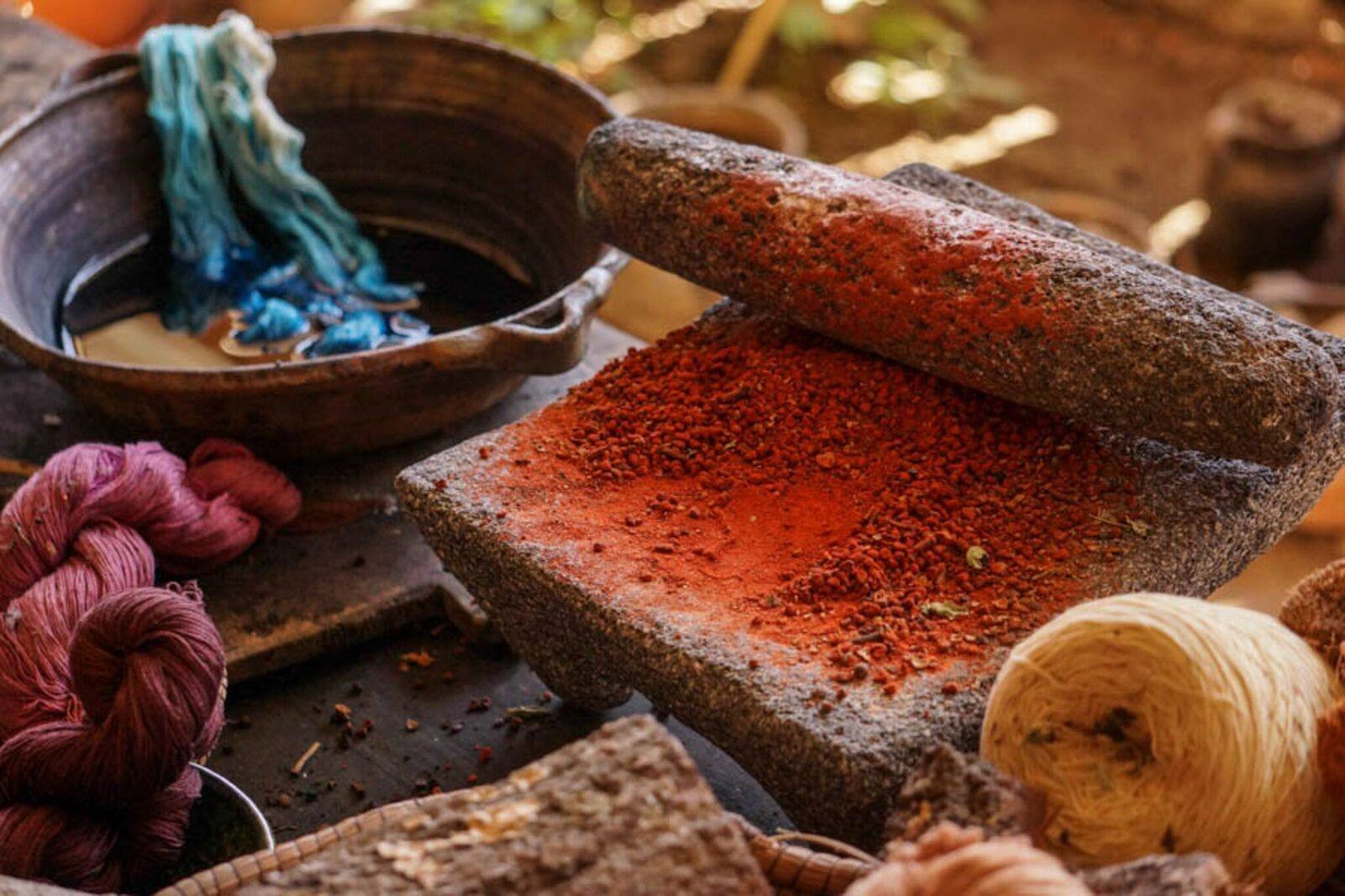

LUPITA
Lupita is a Wixarika medicine woman.
The Wixarika people (also known as Huichol) are from a small village of San Andres in Jalisco, Mexico.
The Wixarika hold their traditions to the 95 percent pre-colonization. They still have their own government from which Lupita served as the governor.
The Wixarika are the original guardians of the Peyote medicine. They still pilgrim to make offerings to the sacred lands of Wirikuta - 1 of 2 places in the entire world where the medicine naturally grows.
The Wixarika still practice all of the ancestral traditions including making beaded art inspired by the visions that they receive from the peyote medicine. Lupita uses the ancestral traditions of beading to make all of her art.
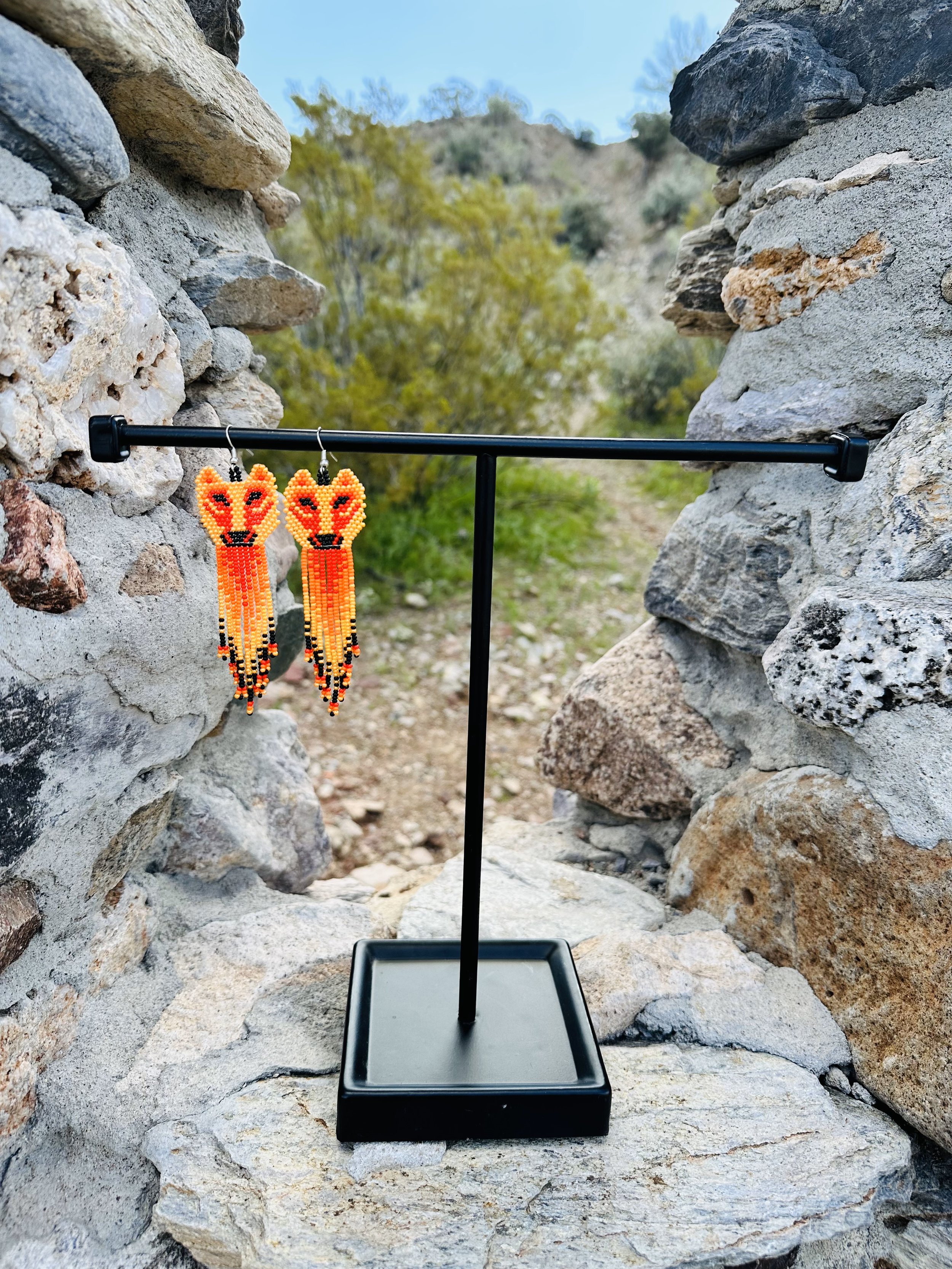

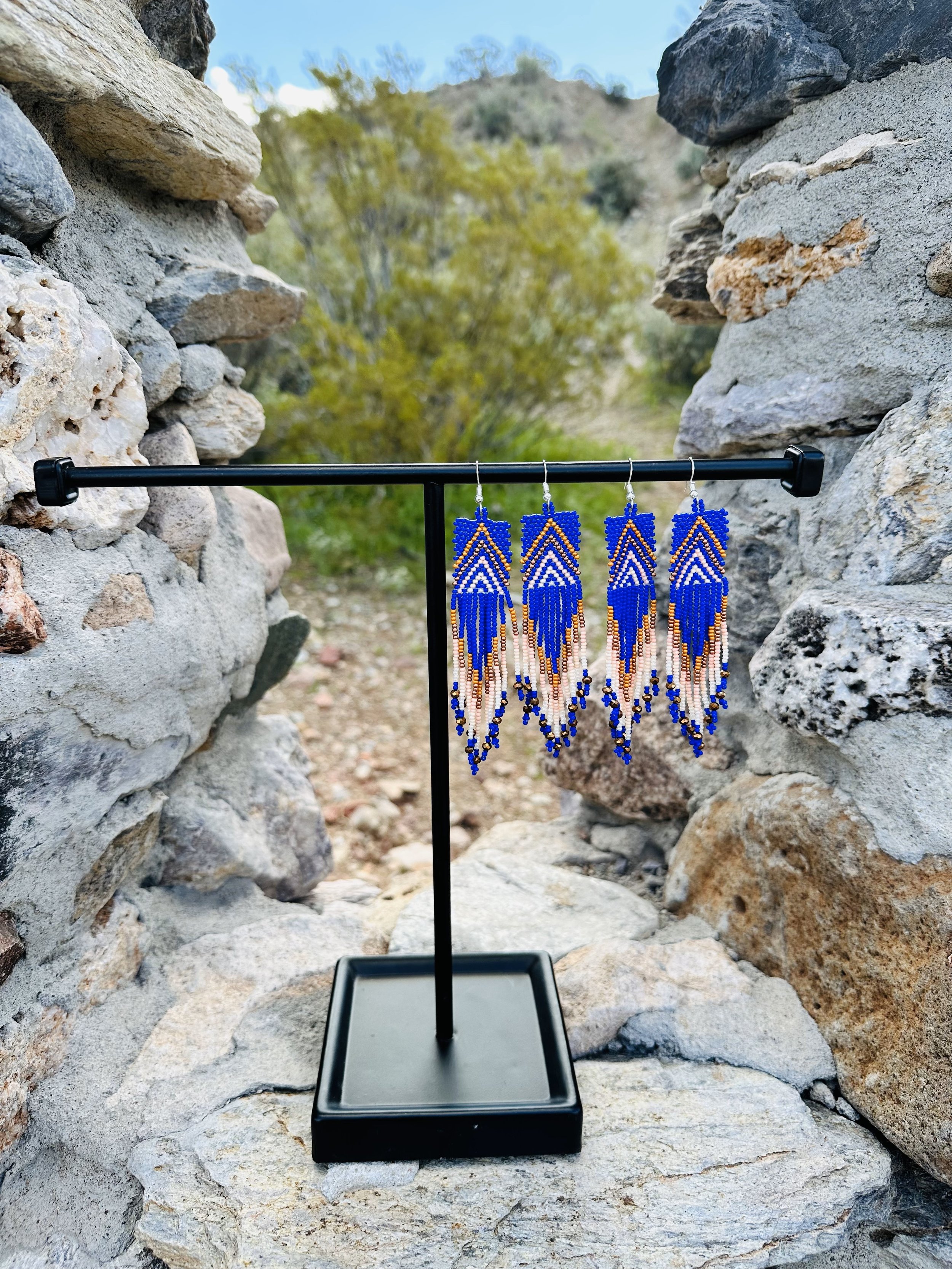
ANDREA
Andrea is a Mayan women who sells her art in the street of San Marcos in Lake Atitlan, Gatemala to support her family. She comes from a family of artisans and he uses the ancestral Mayan traditions of beading that he grandparents passed down to make all of her art.
A note from Andrea:
“Thank you for buying my art. I am very happy to be able to share my art in other countries. It is my dream to share my love and my art to each of the people who buy my art. For me, my art is a medicine that cures my soul and heals my mind. Making art is always a meditation for me so when people buy my art the love and hours of healing is shared with the people... Every purchase that is made is giving support to my family because we live from my art and eat from my art... my art is my life”
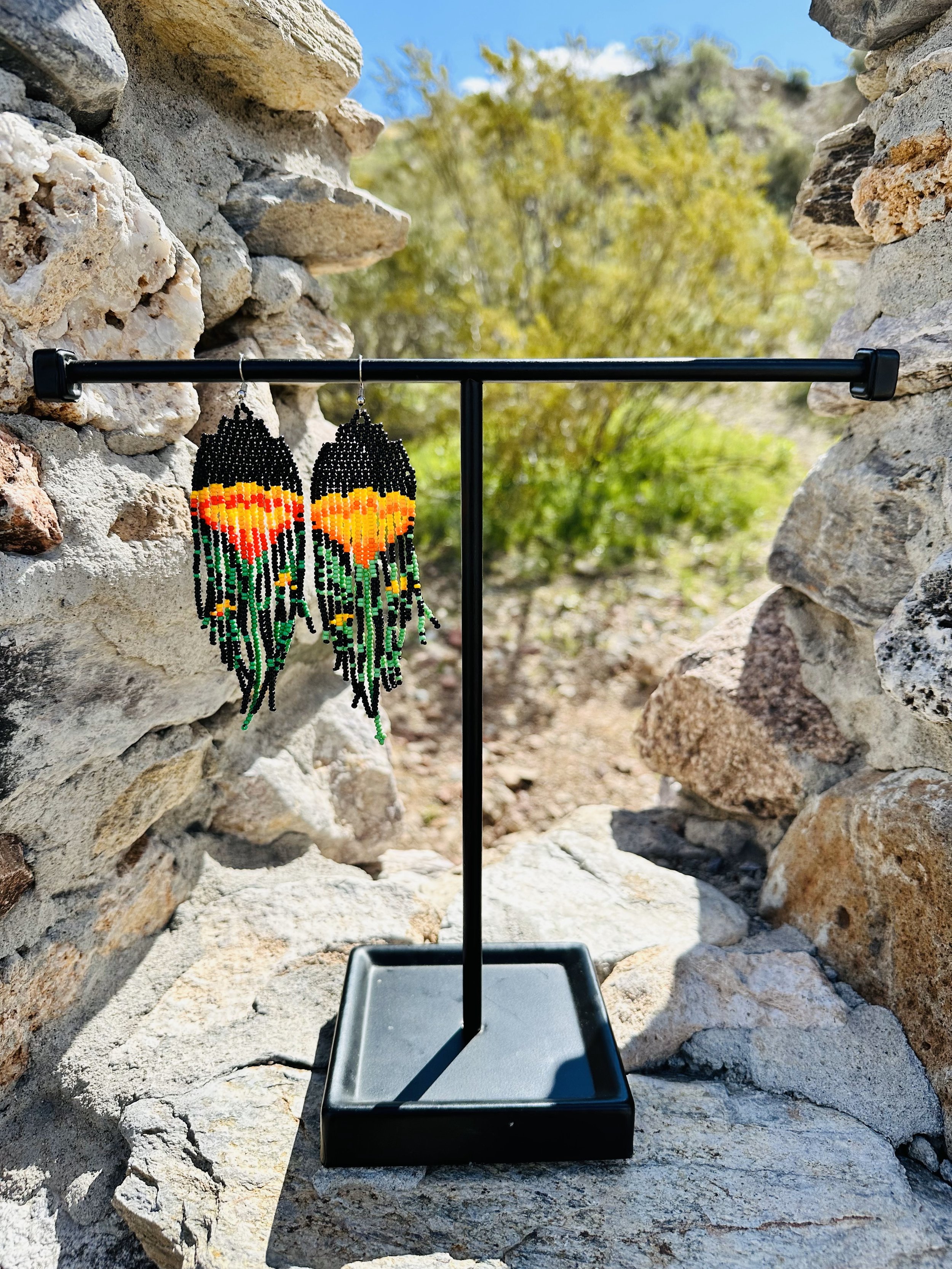
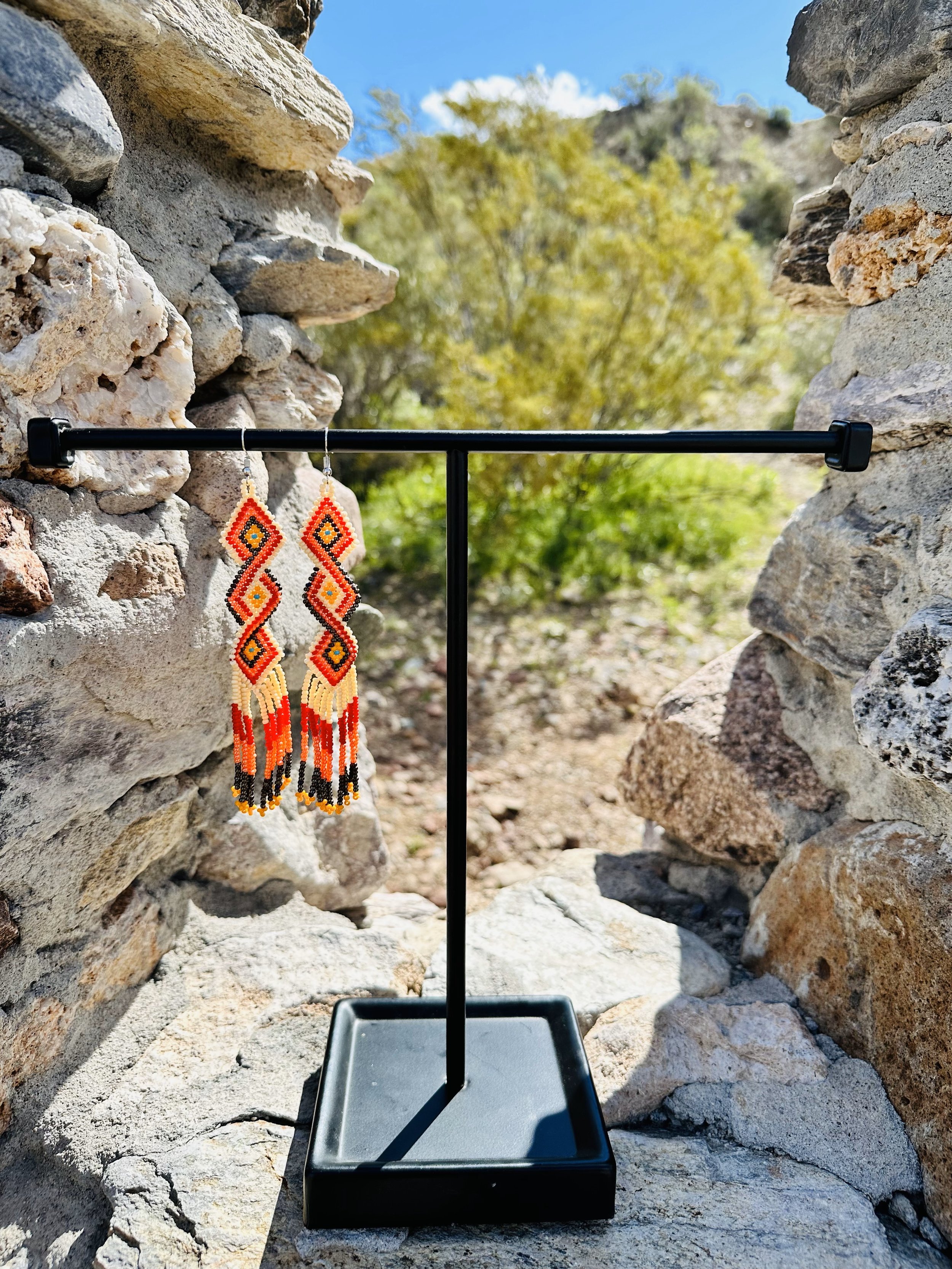

This Mayan Family collects traditional clothing that is not being used within their communities and resells them to be used as clothing, decoration, or recycled into new items.
Huipils are the traditional shirts that Mayan women wear. Each one is handwoven and hand embordered and the different colors and designs carry deep spiritual significance.
“Mayan clothing in particular is closely tied to our culture as it is an important expression of spirituality- you could say that it is in fact a language that expresses wisdom, full of meaningful symbols based on ancient knowledge. As our ancestors say, huipiles are an open book that narrate our lives and have a direct link to our community”.
Fajas are the belts of their traditional clothing and are used for energetic protection of the person who is wearing it. It is a great piece to wear in ceremony, ritual, or after womb healing.
